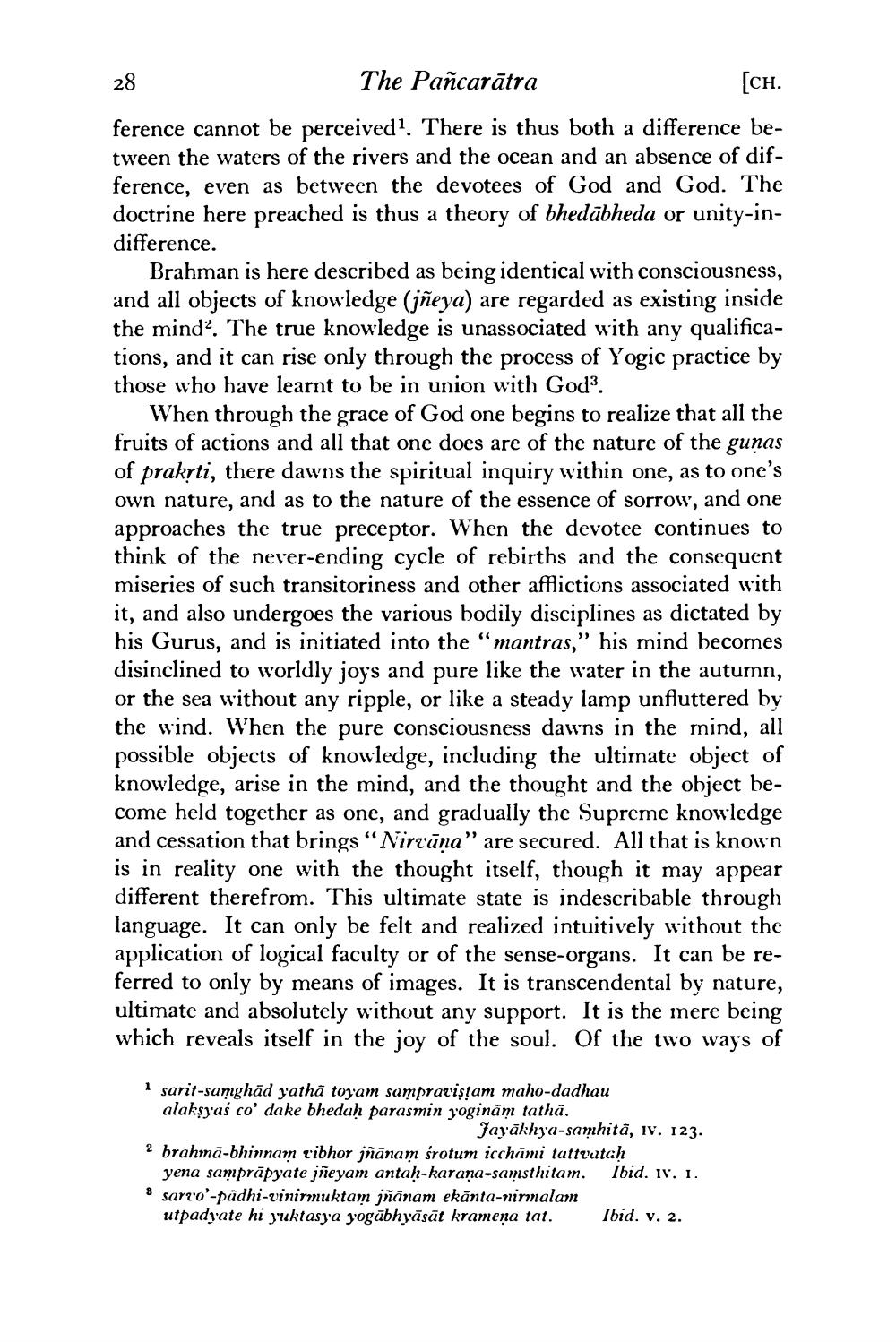________________
28
The Pañcarātra
(CH.
ference cannot be perceived. There is thus both a difference between the waters of the rivers and the ocean and an absence of difference, even as between the devotees of God and God. The doctrine here preached is thus a theory of bhedābheda or unity-indifference.
Brahman is here described as being identical with consciousness, and all objects of knowledge (jñeya) are regarded as existing inside the mind?. The true knowledge is unassociated with any qualifications, and it can rise only through the process of Yogic practice by those who have learnt to be in union with God.
When through the grace of God one begins to realize that all the fruits of actions and all that one does are of the nature of the gunas of prakrti, there dawns the spiritual inquiry within one, as to one's own nature, and as to the nature of the essence of sorrow, and one approaches the true preceptor. When the devotee continues to think of the never-ending cycle of rebirths and the consequent miseries of such transitoriness and other afflictions associated with it, and also undergoes the various bodily disciplines as dictated by his Gurus, and is initiated into the “mantras,” his mind becomes disinclined to worldly joys and pure like the water in the autumn, or the sea without any ripple, or like a steady lamp unfluttered by the wind. When the pure consciousness dawns in the mind, all possible objects of knowledge, including the ultimate object of knowledge, arise in the mind, and the thought and the object become held together as one, and gradually the Supreme knowledge and cessation that brings “Nirvāņa" are secured. All that is known is in reality one with the thought itself, though it may appear different therefrom. This ultimate state is indescribable through language. It can only be felt and realized intuitively without the application of logical faculty or of the sense-organs. It can be referred to only by means of images. It is transcendental by nature, ultimate and absolutely without any support. It is the mere being which reveals itself in the joy of the soul. Of the two ways of
1 sarit-samghād yathā toyam sampravistam maho-dadhau alaksyas co' dake bhedah parasmin yoginam tathā.
Jayākhya-samhitā, iv. 123. 2 brahma-bhinnam ribhor jñānam śrotum icchūmi tattvatah
yena samprāpyate jñeyam antah-karana-samsthitam. Ibid. iv. I. 8 sario'-pādhi-vinirmuktam jñānam ekānta-nirmalam
utpadyate hi juktasy'a yogūbhyāsāt kramena tat. Ibid. v. 2.
mtahotumikha




